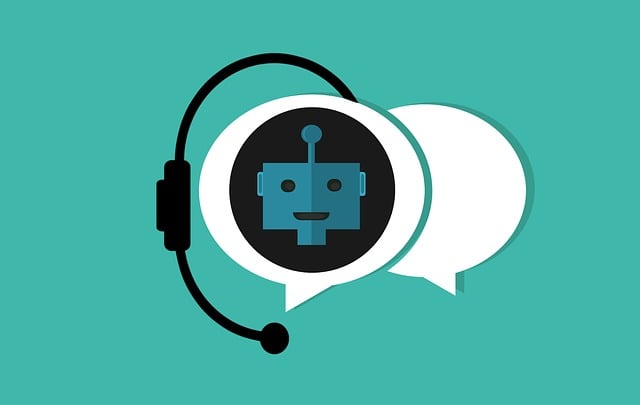“Discover the transformative power of AI chatbots, the digital assistants redefining human-computer interaction. This article explores the multifaceted world of artificial intelligence chatbots, delving into their functionality, from natural language processing to contextual understanding. We uncover the vast benefits they bring to diverse industries, revolutionizing customer service, streamlining operations, and enhancing user experiences. Additionally, we address challenges and ethical considerations in AI chatbot development, ensuring responsible innovation.”
- Understanding AI Chatbots: Their Functionality and Capabilities
- Benefits of Implementing AI Chatbots in Various Industries
- Challenges and Ethical Considerations in AI Chatbot Development
Understanding AI Chatbots: Their Functionality and Capabilities

AI chatbots have transformed the way we interact with technology, offering a natural and intuitive user experience. These intelligent agents leverage advanced natural language processing (NLP) algorithms and machine learning techniques to understand and generate human-like responses. They can engage in conversations, answer queries, provide information, and assist with various tasks across diverse sectors, from customer service to healthcare and beyond.
The functionality of AI chatbots ranges from simple rule-based systems that follow predefined scripts to complex deep learning models capable of contextual understanding and continuous learning. Modern ai chatbots can handle complex requests, adapt to user inputs, and even learn from human feedback to enhance their performance over time. Their capabilities include sentiment analysis, intent recognition, entity extraction, and context maintenance, enabling them to deliver personalized and engaging interactions.
Benefits of Implementing AI Chatbots in Various Industries

Implementing AI chatbots offers a myriad of benefits across various industries, revolutionizing customer service and operational efficiency. These intelligent virtual assistants can handle a multitude of tasks, from answering common queries to resolving complex issues, thereby reducing response times and improving user satisfaction. By learning from past interactions, AI chatbots continuously enhance their performance, ensuring accurate and personalized responses tailored to individual needs.
Moreover, they alleviate human workload, allowing customer service representatives to focus on more intricate matters that demand empathy and nuanced decision-making. This strategic redistribution of tasks boosts employee morale, fosters productivity, and ultimately contributes to business growth. In today’s digital era, where speed and convenience are paramount, AI chatbots are becoming indispensable tools for staying competitive and meeting evolving customer expectations.
Challenges and Ethical Considerations in AI Chatbot Development

In developing AI chatbots, several challenges and ethical considerations come into play. One primary concern is data quality and bias. These models learn from vast amounts of text data, and if the data contains biases or inaccuracies, the chatbot may perpetuate or amplify these issues in its responses. Ensuring diverse, unbiased, and high-quality training datasets is an ongoing challenge.
Additionally, privacy and security are paramount. AI chatbots often process sensitive user information, necessitating robust security measures to protect user data from breaches and misuse. Ethical guidelines must be strictly adhered to, especially regarding data collection, storage, and usage. Transparency in how user interactions with chatbots are handled can help build trust and mitigate potential harms associated with advanced AI technologies.
AI chatbots have the potential to revolutionize interactions across industries, offering enhanced customer service, improved efficiency, and personalized experiences. However, their development must navigate challenges such as data privacy, bias, and ethical AI practices. As technology advances, understanding and addressing these issues will be crucial for harnessing the full benefits of ai chatbots while ensuring they serve users responsibly.
